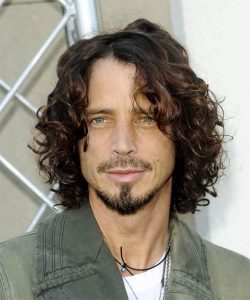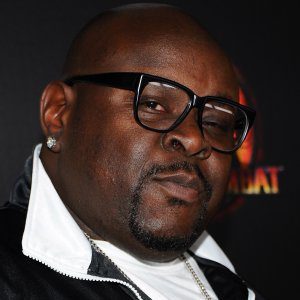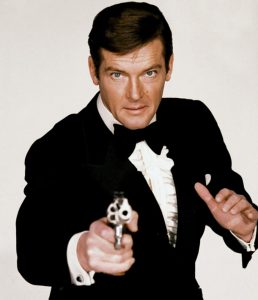Chris Cornell, lead singer of Soundgarden and Audioslave, and one of the most recognizable voices in contemporary rock music, was found dead in his Detroit hotel room, according to the Wayne County Medical Examiner’s Office. The cause of death was suicide by hanging. Cornell was 52.
Mere hours before he took his own life, Cornell sang one last time with Soundgarden at Detroit’s Fox Theater, and the band was scheduled to perform in Columbus, Ohio later in the week at the Rock on the Range Festival.
Around midnight on May 18th, 2017, the Detroit Police Department responded to the report of a suicide, the victim of which was not immediately identified. The department did, however, release the victim’s date of birth—July 20th, 1964, which is that of Cornell. He was found in a bathroom with a band of some kind wrapped around his neck.
The vocalist’s unexpected death has stunned fans all over the world. One of the leading architects of the 1990s grunge movement, Chris Cornell gained critical acclaim as the frontman of Soundgarden. His success went beyond the Seattle-based band, however, and Cornell went on to find further acclaim for this solo albums, and with his vocals and songwriting for bands Audioslave and Temple of the Dog.
Cornell’s voice, with its near four octave range and its ability to go from a soul-filled howl to a rumbling growl, was both powerful and memorable, but his skill at writing his own music was just as incredible, earning him a Golden Globe nomination for his work on “The Keeper,” from the film “Machine Gun Preacher.”
“To create the intimacy of an acoustic performance there needed to be real stories,” said Cornell in a 2015 interview with The Associated Press. “They need to be kind of real and they need to have a beginning, middle and an end. That’s always a challenge in three in a half or four minutes—to be able to do that, to be able to do it directly.”
Cornell, like many of the great figures of the music industry, had a troubled youth, and delved into drug abuse at the tender age of 13, getting kicked out of school at 15, according to a 1994 interview with Rolling Stone. He went through a period where he had few, if any, close friends, and those he associated with only pulled him further into the world of drugs.
At 16, though, something changed. Cornell became serious about his love for music, and began to practice his drum technique while working as a dishwasher.
Cornell finally found his footing in 1984, when he formed Soundgarden, which went on to earn a Grammy Award nomination for Best Metal Performance in 1990. The band went on to become one of the most successful in Seattle’s emerging grunge scene, finding huge commercial success with their 1994 album, “Superunknown,” whicih won two Grammys and racked up over five million sales in the U.S.
Soundgarden broke up in 1997, and Cornell once again descended into drug use, according to a 2009 interview with The Guardian, citing OxyContin abuse and a subsequent stint in rehab. In 2001, the singer joined Audioslave, formed from former Rage Against the Machine members. The band combined 1970s hard rock with 1990s alternative rock, and in its six years of existence, received three Grammy nominations and became the first American rock band to perform in an outdoor concert in Cuba.
With Audioslave having disbanded in 2007 due to personality conflicts amongst its members, Cornell reunited with Soundgarden in 2010, releasing “King Animal” two years later and continuing to perform across the country. Their music, as described by New York Times writer, Jon Pareles, as “one reunited band that can pick up right where it left off.”
But as successful as Cornell’s public life was, his private life was often marked by problems. In a 2015 interview with Rolling Stone Cornell referenced drinking problems, marital issues, and depression. He referenced ideas concerning death and suicide in his second solo album, “Carry On,” which Cornell describes as coming out of “me trying to imagine why somebody would be, for example, a suicide bomber.”
The music industry, as well as Cornell’s legion of diehard fans, have publically mourned the singer’s death. Elton John, himself, has tweeted that he is “Shocked and saddened by the sudden death of @chriscornell. A great singer, songwriter and the loveliest man.”
Chester Bennington, lead singer of Linkin Park, with whom Cornell toured in 2007 and 2008, wrote a moving letter concerning Cornell’s death.
“I just watched a video of you singing ‘ A day in the life ‘ by the Beatles and thought of my dream. I’d like to think you were saying goodbye in your own way. I can’t imagine a world without you in it. I pray you find peace in the next life. I send my love to your wife and children, friends and family. Thank you for allowing me to be a part of your life.”
Cornell leaves behind a legacy in the Chris and Vicky Cornell Foundation, which supports children facing issues of homelessness, poverty, and abuse. He is survived by wife Vicky Krayiannis, his son, Christopher, and his daughters, Toni and Lillian.



